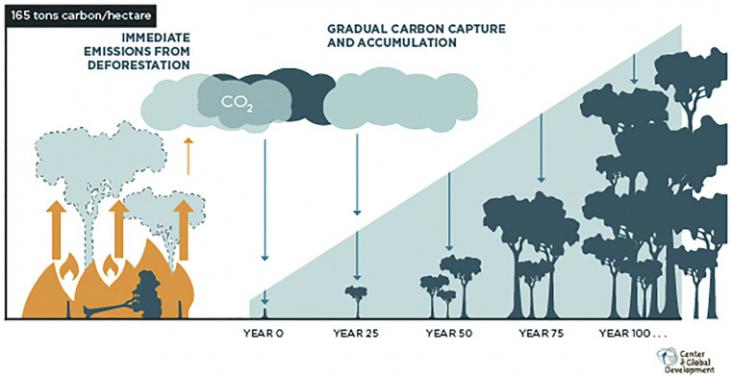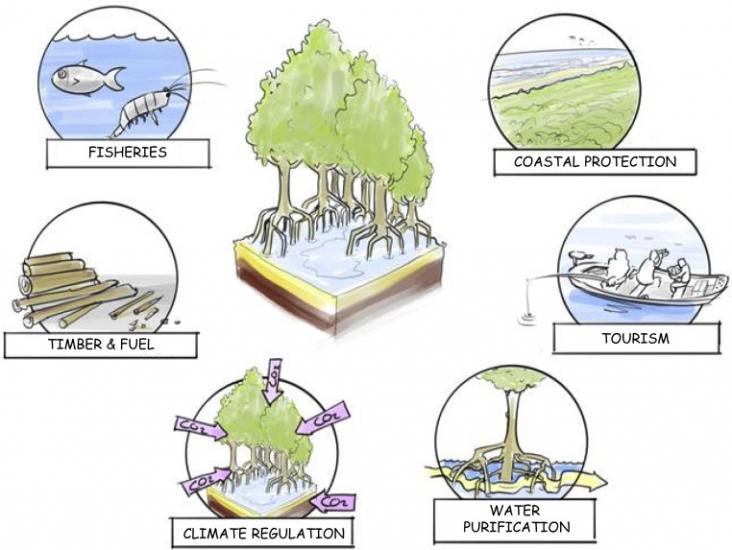Refuges and refugia are important to conservation management because of their potential to protect species from difficult-to-manage threats such as changing climate, extreme events (e.g., drought, fir

Largely driven by the corporate sector, the recent surge of interest in trees as a solution to climate change has a distinct emphasis on planting trees.
Forests are key components of the global carbon cycle and dominate mitigation strategies for climate change and biodiversity loss.

Mangrove forests are found on sheltered coastlines in tropical, subtropical, and some warm temperate regions.
The IUCN (the International Union for Conservation of Nature) World Conservation Congress called for the full protection of 30% of each marine habitat globally and at least 30% of all the ocean.
Ocean health is critical for human well-being but is threatened by multiple stressors. Parties to the Convention on Biological Diversity agreed to protect 10% of their waters by 2020.
The planetary boundaries framework proposes quantified guardrails to human modification of global environmental processes that regulate the stability of the planet and has been considered in sustainab
In the face of the growing challenges brought about by human activities, effective planning and decision-making in biodiversity and ecosystem conservation, restoration, and sustainable development are

Water footprint (WF) measures human appropriation of water resources for consumptive use of surface and ground water (blue WF) and soil water (green WF) and for assimilating polluted water (grey WF).
